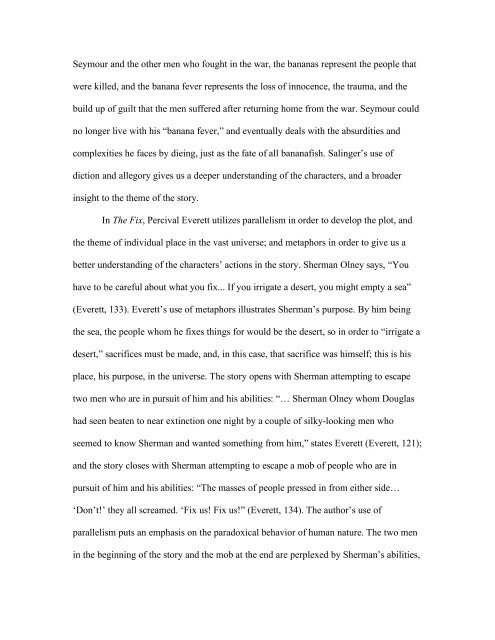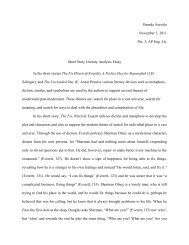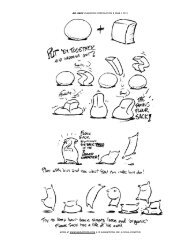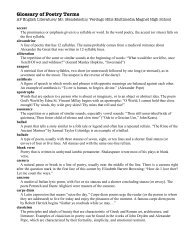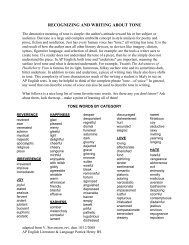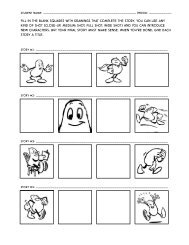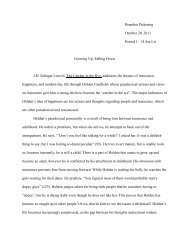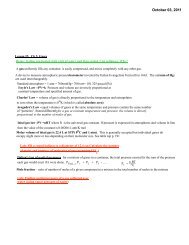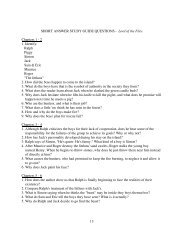Short Story Essay 3
Short Story Essay 3
Short Story Essay 3
Create successful ePaper yourself
Turn your PDF publications into a flip-book with our unique Google optimized e-Paper software.
Seymour and the other men who fought in the war, the bananas represent the people that<br />
were killed, and the banana fever represents the loss of innocence, the trauma, and the<br />
build up of guilt that the men suffered after returning home from the war. Seymour could<br />
no longer live with his “banana fever,” and eventually deals with the absurdities and<br />
complexities he faces by dieing, just as the fate of all bananafish. Salinger’s use of<br />
diction and allegory gives us a deeper understanding of the characters, and a broader<br />
insight to the theme of the story.<br />
In The Fix, Percival Everett utilizes parallelism in order to develop the plot, and<br />
the theme of individual place in the vast universe; and metaphors in order to give us a<br />
better understanding of the characters’ actions in the story. Sherman Olney says, “You<br />
have to be careful about what you fix... If you irrigate a desert, you might empty a sea”<br />
(Everett, 133). Everett’s use of metaphors illustrates Sherman’s purpose. By him being<br />
the sea, the people whom he fixes things for would be the desert, so in order to “irrigate a<br />
desert,” sacrifices must be made, and, in this case, that sacrifice was himself; this is his<br />
place, his purpose, in the universe. The story opens with Sherman attempting to escape<br />
two men who are in pursuit of him and his abilities: “… Sherman Olney whom Douglas<br />
had seen beaten to near extinction one night by a couple of silky-looking men who<br />
seemed to know Sherman and wanted something from him,” states Everett (Everett, 121);<br />
and the story closes with Sherman attempting to escape a mob of people who are in<br />
pursuit of him and his abilities: “The masses of people pressed in from either side…<br />
‘Don’t!’ they all screamed. ‘Fix us! Fix us!” (Everett, 134). The author’s use of<br />
parallelism puts an emphasis on the paradoxical behavior of human nature. The two men<br />
in the beginning of the story and the mob at the end are perplexed by Sherman’s abilities,


